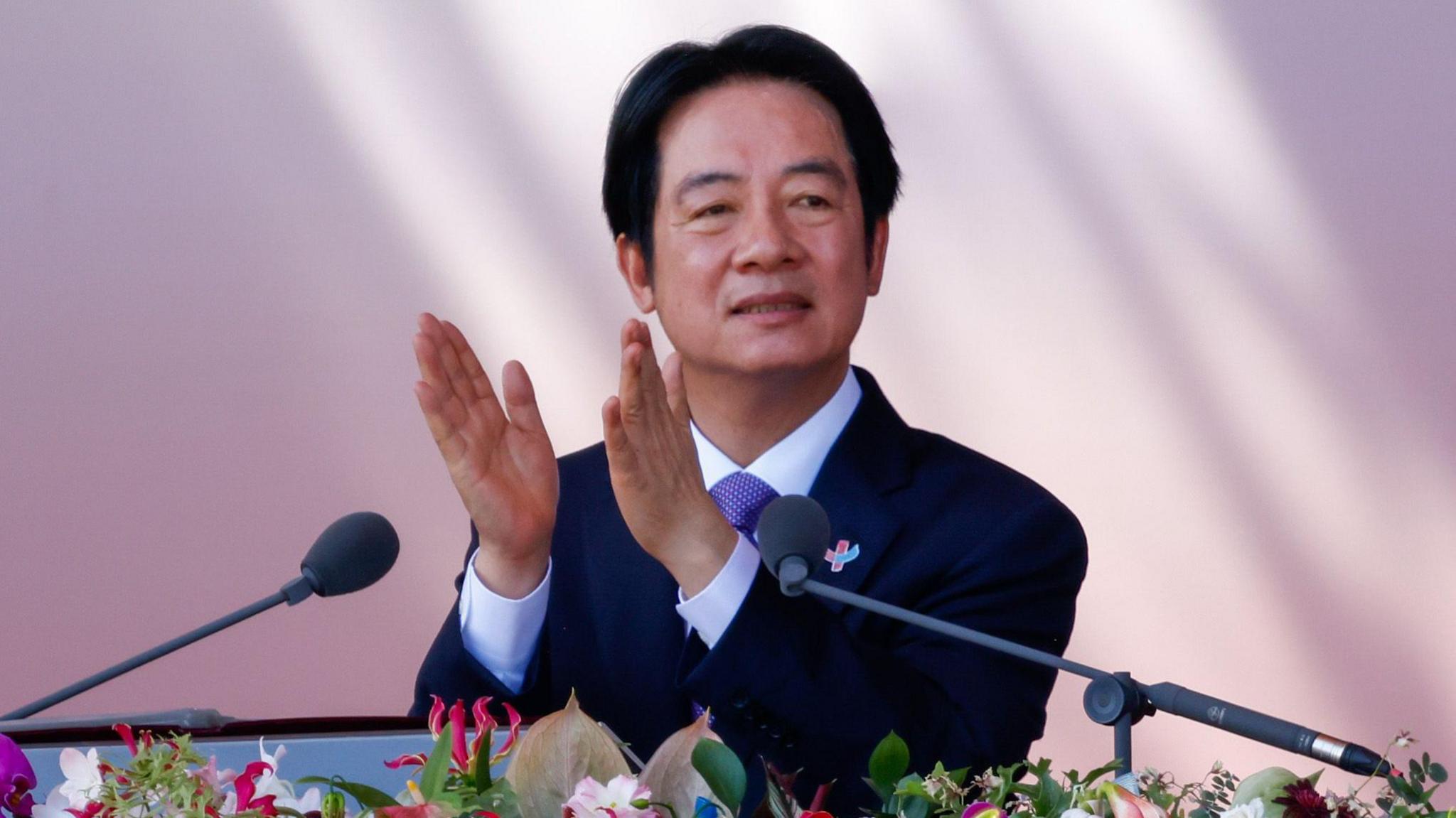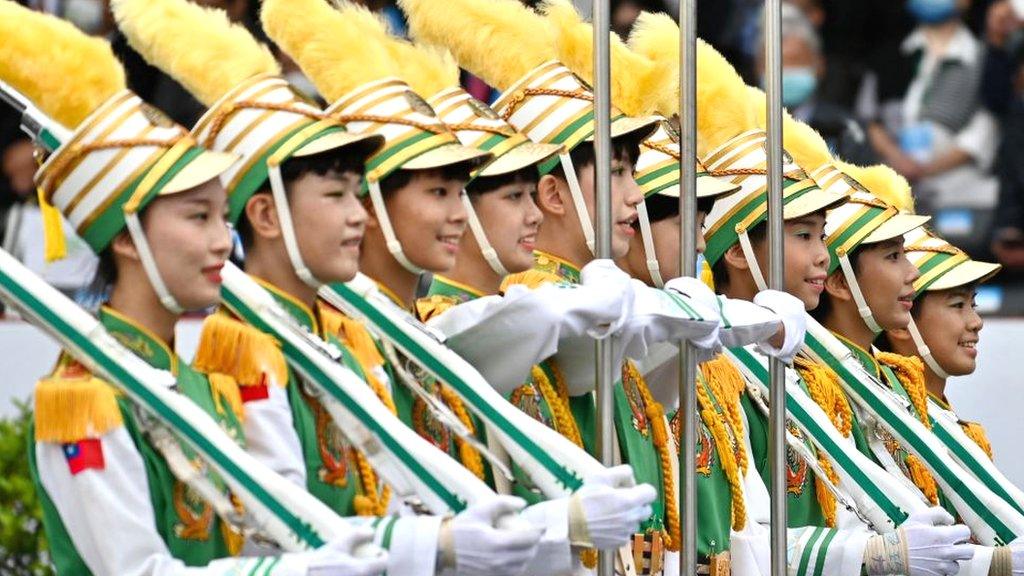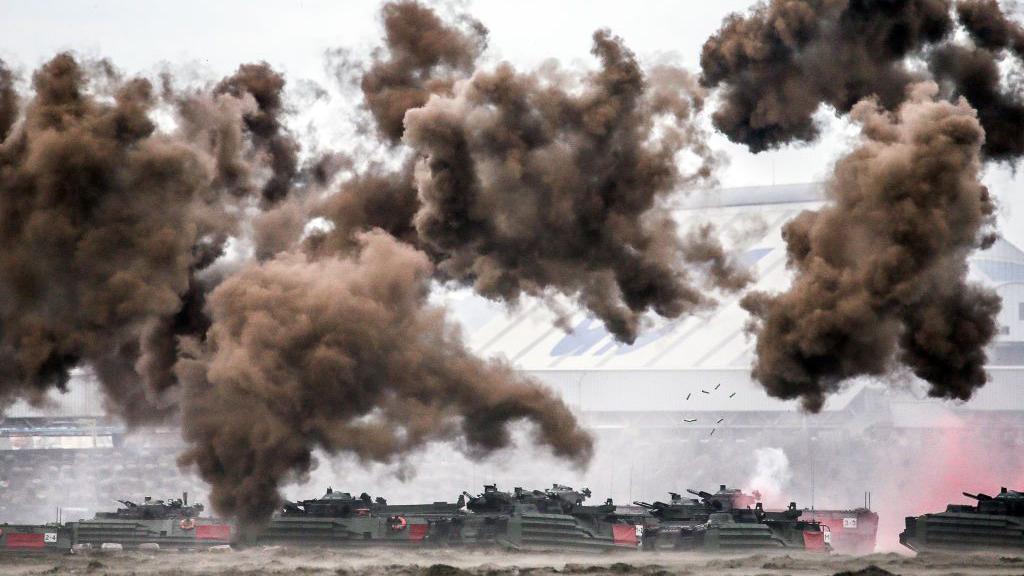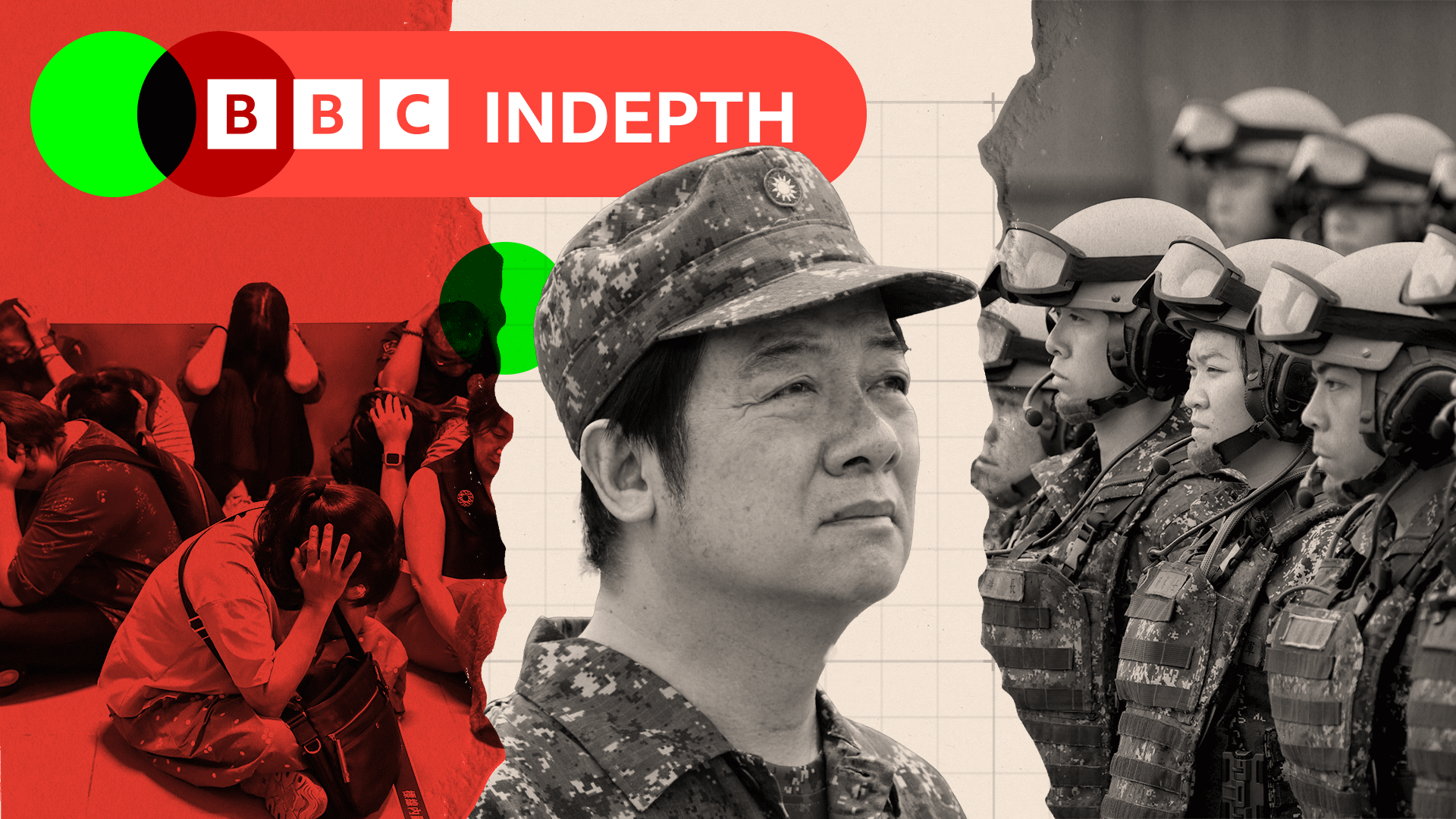Taiwan to build air defence dome against 'hostile threats'

Taiwanese President LaI speaks during National Day
- Published
Taiwan will build a dome-like air defence system to guard against "hostile threats", President William Lai announced a day after his government warned that China is enhancing its ability to attack the island.
Lai did not mention China by name - but Beijing has long claimed self-governed Taiwan as its own and hasn't ruled out the use of force to take it.
Lai also said there was a "clear necessity" to boost spending - a likely reference to increasing Chinese incursions into Taiwanese waters and airspace, including military drills that simulate an invasion.
But defence has become a polarising subject in Taiwan, which remains divided about how the government should respond to the Chinese threat.
Lai's opponents accuse him of using the fear of a Chinese invasion to shore up his support, and urge more diplomacy with Beijing.
But Taiwan's defence ministry has said that China could suddenly turn military drills into actual attacks to catch Taiwan off-guard.
The island will increase its defence spending to more than 3% of its gross domestic product next year and up to 5% by 2030, Lai said on Friday, speaking on the occasion of National Day.
This may be challenging, however, as an opposition-controlled legislature has blocked several spending bills this year.
Unnamed sources who spoke to Reuters news agency compared the newly announced so-called Taiwan or "T Dome" to Israel's Iron Dome network, which can intercept a range of short-range weapons and operate in all types of weather.
The capabilities of the Iron Dome have been especially evident since Israel's war with Hamas started in October 2023. The shield has intercepted thousands of rockets fired by Hamas and other militant groups, such as Hezbollah over the last two years.
Equipped with "multi-layered defence, high-level detection and effective interception", Taiwan's T-Dome will "weave a safety net" to protect citizens, Lai said.
Lai's remarks "distort facts" and "mislead public opinion", Guo Jiakun, the spokesperson for the Chinese foreign ministry said during Friday's press briefing.
He called Lai a "troublemaker" and "warmonger", and reiterated that Taiwan was "an inseparable part of China's territory".
While the T Dome shows the Taiwan's commitment to self-defence, implementing it will be challenging, analysts say.
"If the system is modelled after Israel's, it will require a massive budget. It won't be easy," said political scientist Hung-Jen Wang of the National Cheng Kung University.
"The building of the T-Dome won't happen quickly," said Dennis Weng of Sam Houston State University, adding that Lai's announcement had a "promotional intent".
It will take longer than the remainder of Lai's term to build the dome, he added, which suggests the message is "clearly aimed at the US".
Although the US is required by law to arm Taiwan in case of an attack, President Donald Trump's administration has urged the island to do more to defend itself.
In his speech on Friday, Lai also called on China to "demonstrate the responsibility befitting a major power" by renouncing its use of force and coercion to in the Taiwan Strait.
"Looking back at World War Two, we see that so many experienced the suffering of war and the pain of invasion. We should learn from these lessons and ensure that the tragedies of history are never repeated," he added.
Reviled by Beijing as a "separatist", Lai has taken a more forceful stand against China compared to his predecessor, Tsai Ing-wen, including investing in Taiwan's military.
In July, it held its largest and longest iteration of an annual military exercise, aimed at readying the population for a possible invasion and publicly showcasing the island's defences.
Additional reporting by Joyce Lee and Ting Chiang in Taipei
- Published10 October 2022


